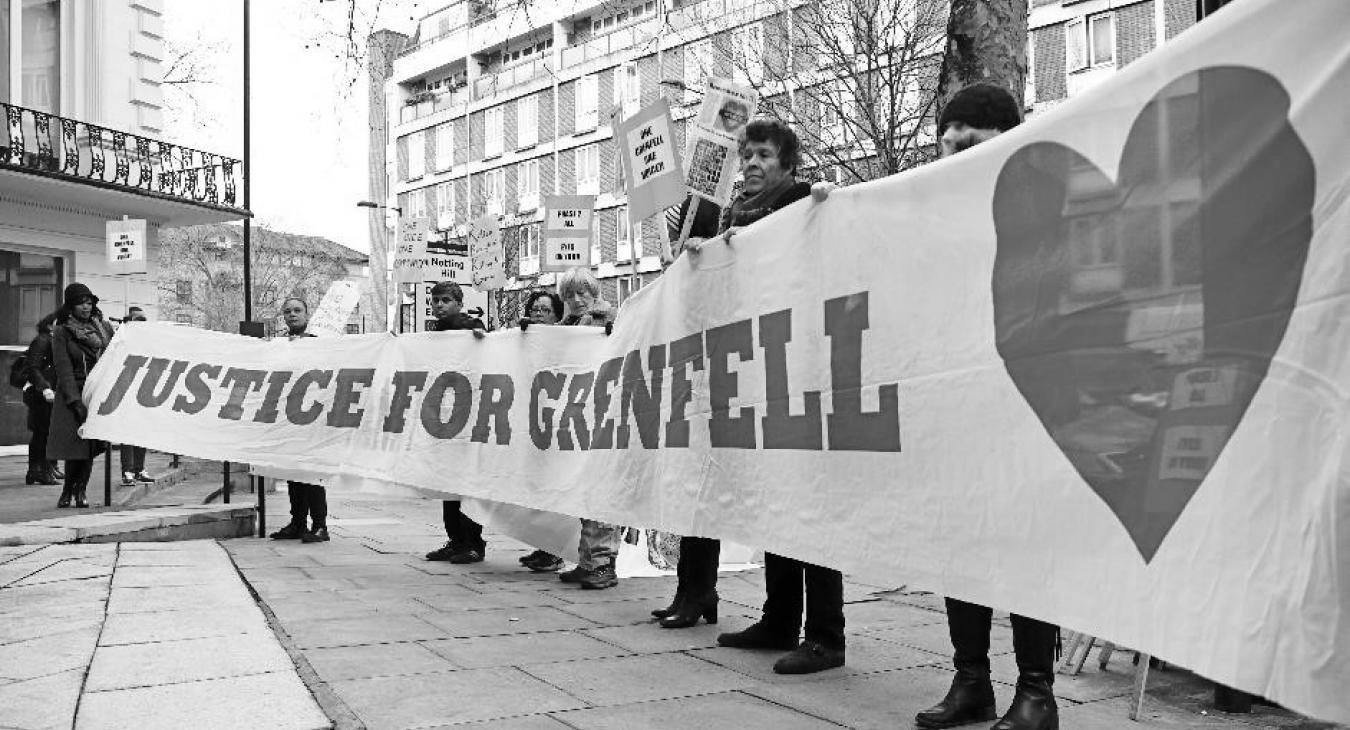Grenfell Inquiry

Will the £350 million spent on the Grenfell Inquiry deliver justice?
On the 4th of September, 2024, the Grenfell Tower Inquiry released its long-awaited Phase 2 report, marking a pivotal moment in the quest for justice and accountability following the tragic fire that claimed 72 lives on the 14th of June, 2017.
Building upon the findings of Phase 1, which focused on the events of the night of the fire, Phase 2 delves deeper into the underlying causes and systemic failures that led to one of the worst residential fires in UK history.
Sir Martin Moore-Bick, chairman of the Inquiry, delivered a sobering introduction to the report, stating, “The deaths that occurred were all avoidable, and those who lived in Grenfell Tower were badly failed over several years by those who were responsible for ensuring the safety of its occupants.” This damning conclusion sets the tone for a report that exposes a web of incompetence, negligence, and in some cases, outright dishonesty across multiple institutions and organisations.
The Phase 2 report identifies a wide range of culpable parties, including the government, the Tenant Management Organisation (TMO), the Royal Borough of Kensington and Chelsea, manufacturers and suppliers of materials used in the refurbishment, architects, contractors, and the London Fire Brigade. Sir Moore-Bick emphasised that while not all bear the same degree of responsibility, “all contributed to it in one way or another, in most cases through incompetence but in some cases through dishonesty and greed.”
The report’s findings have reignited calls for criminal prosecutions. Michael Mansfield KC, representing some of the bereaved families and survivors, stated, “This report provides irrefutable evidence of criminal negligence on a massive scale. It’s now incumbent upon the Crown Prosecution Service to act swiftly and decisively to bring those responsible to justice.”
One of the most striking aspects of the report is its emphasis on the systemic disregard for residents’ concerns and complaints. Thouria Istephan, panel member and architect, highlighted this issue: “Our report identifies what we think is needed to make sure that the legacy of Grenfell is real and brings about lasting change. Our recommendations place new responsibilities on building owners and managers to listen to residents and act on their concerns.”
The Phase 2 report builds on the foundations laid by Phase 1, which had already identified serious failings in the London Fire Brigade’s response to the fire. Commissioner Andy Roe acknowledged these findings, stating, “We have since implemented significant changes to how we operate. This year, we completed every recommendation directed at us as part of Phase 1. We have introduced important policies, new equipment, improved training and better ways of working, particularly in how we respond to fires in high-rise residential buildings.”
However, the Phase 2 report goes further, examining the broader context that allowed such a tragedy to occur. It scrutinises the regulatory framework, the role of corporate entities, and the culture of complacency that permeated multiple levels of government and industry.
Housing Ombudsman Richard Blakeway emphasised the need for a fundamental shift in attitudes towards social housing residents: “Integral to these findings are respect and trust – and the principles of transparency and accountability. It is clear residents’ complaints were dismissed and devalued. There is a wider societal change that needs to take place towards those living in social housing, stopping the stigma towards this important tenure.”
The report’s recommendations are far-reaching, calling for a comprehensive overhaul of building regulations, stricter enforcement of fire safety standards, and a new culture of accountability in the construction and management of high-rise buildings. It also emphasises the critical importance of community engagement, ensuring that residents’ voices are heard and respected in all matters concerning their safety and well-being.
For the North Kensington community, the impact of the Grenfell fire continues to reverberate. Local councillor Emma Dent Coad reflected on the ongoing challenges: “The trauma of that night is still very much alive in our community. While this report is a step towards accountability, we’re still fighting for proper support for survivors and bereaved families, for safe and decent housing, and for a community voice in decisions that affect our lives.”
As the nation digests the findings of the Phase 2 report, the question remains: Will this be the catalyst for real change, or will the £350 million spent on the Grenfell Inquiry join the long list of reports and inquiries that fail to translate into concrete action?
“The deaths that occurred were all avoidable, and those who lived in Grenfell Tower were badly failed over several years by those who were responsible for ensuring the safety of its occupants.”
